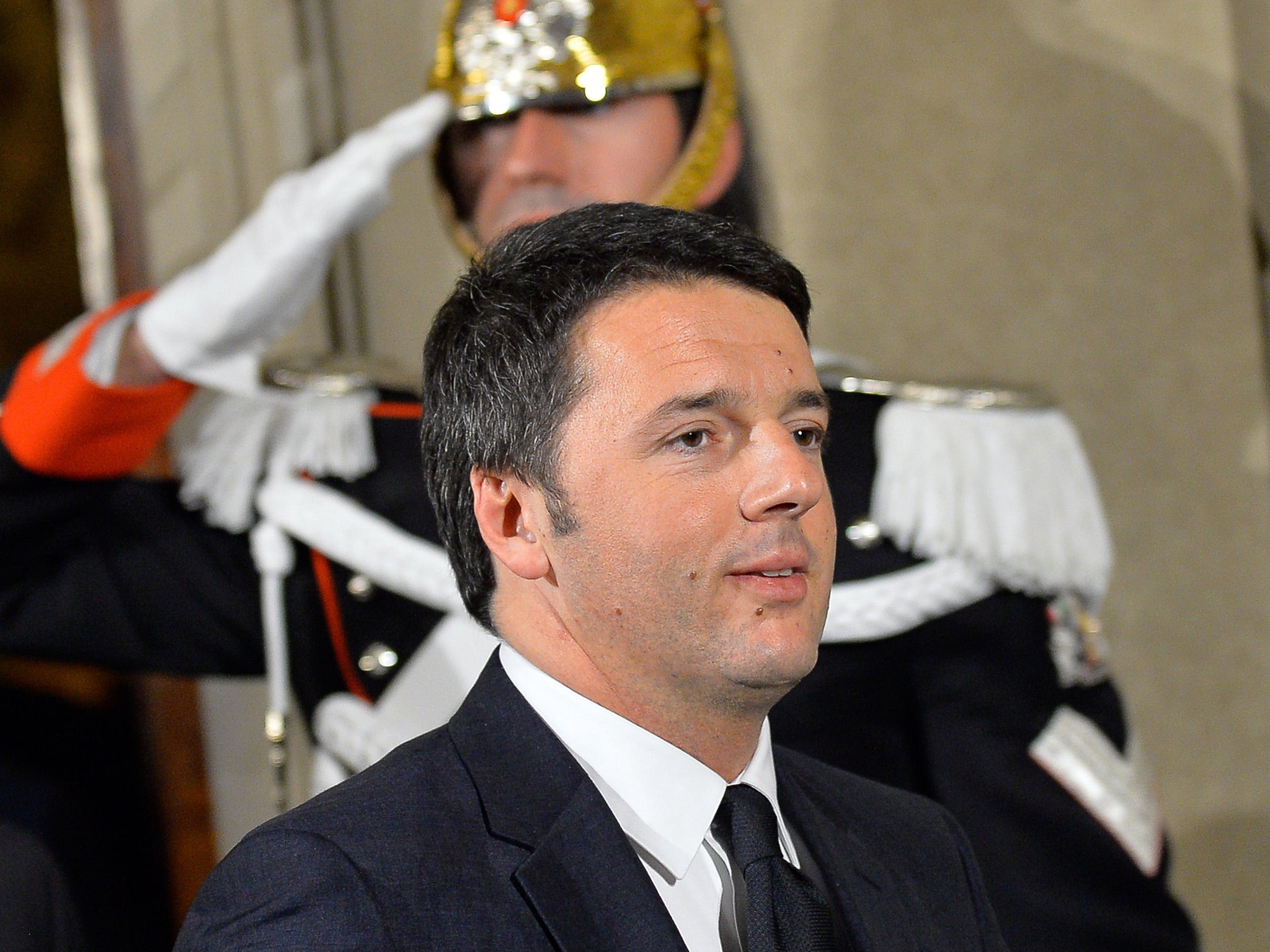Italy's Matteo Renzi sworn in as prime minister
New government to face confidence vote on Monday

Italian centre-left leader Matteo Renzi took office on Saturday as his country's youngest prime minister, facing pressure to show immediate results after he forced out his predecessor over the slow pace of economic reforms.
The 39-year-old Renzi has named a low-profile list of ministers which included no figures capable of challenging his control of the government. Its success or failure will be seen as his responsibility alone.
With an average age of under 48, the 16-member cabinet is one of the smallest and youngest in recent Italian history. Half its members are women, the largest proportion ever, underlining the image of a fresh start on which Renzi has built his reputation.
But he faces a huge challenge with the eurozone's third largest economy struggling to emerge from its worst slump since World War Two, weighed down by a 2 trillion euro public debt and an industrial base that has crumbled over the past decade.
"The responsibility is enormous and this must not fail," said Rocco Palombella, secretary general of the UILM union. "If it does, there will be no appeal," he said.
The new prime minister has laid out an ambitious agenda for his first months in office, promising a sweeping overhaul of the electoral and constitutional system to give Italy more stable governments in future and reforms to the labour and tax systems and the bloated public administration.
Renzi, who won the leadership of the centre-left Democratic Party only in December, forced his party rival Enrico Letta to resign last week after criticising his failure to move quickly on economic reforms.
However, the unwieldy coalition with the small centre-right NCD party on which he will depend for a majority remains unchanged from the one which backed Letta. He also faces a fractious parliament which has proved difficult for successive governments to control.
Media commentators and opposition politicians were also quick to point to similarities between the new and old governments - five ministers have remained in the cabinet and another, Graziano Delrio, has become Renzi's chief of staff.
Read more:
The oldest member of the cabinet, 64-year-old Economy Minister Pier Carlo Padoan, will play a key role in maintaining the confidence of partners ranging from the European Central Bank to foreign investors.
The other main economic ministers, Industry Minister Federica Guidi, a former official at employers' association Confindustria, and Labour Minister Giuliano Poletti, former head of the cooperative association Legacoop, will face pressure on industrial policy.
Among the new government's priorities will be cutting taxes on business and easing strict labour market rules that deter employers from taking on new staff, but in both cases it will be bound by tight constraints.
Italy's European Union partners have made clear they are unwilling to give the new government room to breach tight borrowing limits while unions have opposed moves to loosen strict hiring and firing rules.
Join our commenting forum
Join thought-provoking conversations, follow other Independent readers and see their replies
Comments